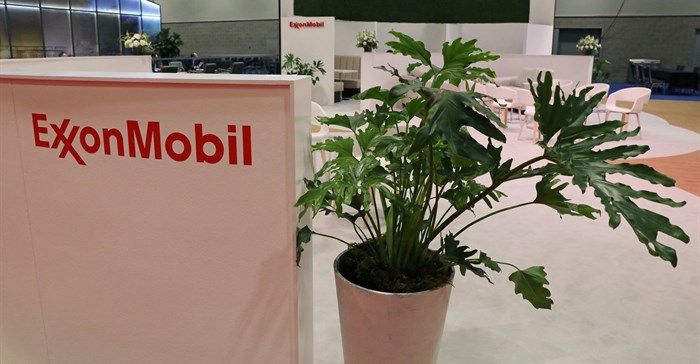Exxon Mobil's asset sale to Seplat Energy could be approved in less than two weeks, Nigeria's oil regulator told Reuters on Thursday, ending a two-year delay since the deal was first agreed.

Plants are displayed at the booth of American multinational oil and gas corporation ExxonMobil during the LNG 2023 energy trade show in Vancouver. Source: Reuters/Chris Helgren
Exxon Mobil's asset sale to Seplat Energy could be approved in less than two weeks, Nigeria's oil regulator told Reuters on Thursday, ending a two-year delay since the deal was first agreed.
The $1.28bn sale in Africa's largest oil exporter has awaited regulatory approval since 2022.
Nigerian Upstream Petroleum Regulatory Commission (NUPRC) chief Gbenga Komolafe told Reuters the companies would be invited to a meeting on Friday.
Sergio Goncalves 22 Apr 2024 "Subject to the outcome of the meeting, consent... could be given in less than two weeks from the date of the meeting," he said.
NUPRC would give the companies two mutually exclusive options that, if accepted, would permit approval of the deal, Komolafe said.
He did not spell out what these options were, but said the law requires money to be set aside for decommissioning, host community development and environmental remediation.
"As a commission, we don't want our nation to carry unwarranted financial burdens arising from the operations of the assets over time by the divesting entities," he said.
Spokespeople for Exxon and Seplat declined to comment.
Foreign exit
Africa's top oil producer relies on the commodity for more than 90% of its foreign exchange and half its budget. But output has declined in recent years due to underinvestment and theft.
Oil majors operating in Nigeria, including Shell and TotalEnergies, have exited their onshore shallow water operations, citing security concerns, such as theft and sabotage, to focus on deepwater drilling. Those moves have run into regulatory hurdles.
Analysts say approving the Exxon-Seplat deal would inject much-needed capital into Nigeria's oil industry, potentially leading to improved oil output, and signal to investors that similar deals such as Shell's asset sale to Renaissance in January are likely to get regulatory assent.
Former Nigerian president Muhammadu Buhari initially consented to the transaction but withdrew that consent days later after the oil regulator refused to sign off.
President Bola Tinubu, who took office last year, has made attracting investment a key priority.



























